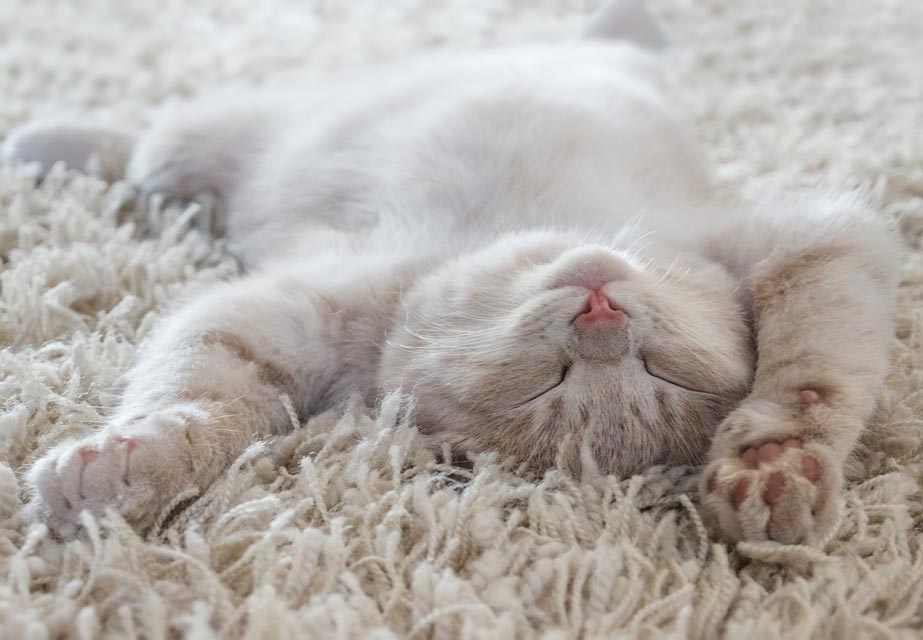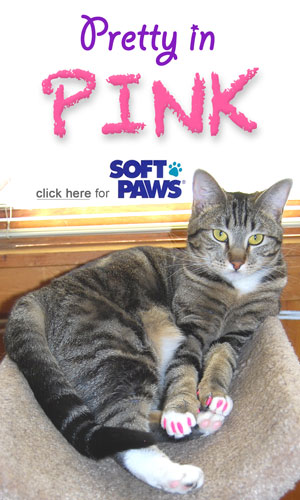- Home
- How Much Should My Cat Sleep?

How Much Should My Cat Sleep?

They call it catnapping for a reason: cats do a lot of napping. But how do you know when your cat is sleeping a healthy amount and when there might be a problem?
Normal Cat Sleeping Patterns
Cats that are healthy adults often sleep between 15 and 20 hours per day. That's a lot of sleep—nearly twice as much as most other mammals need.
Of course, cats don't just climb into their cozy cat bed and sleep for 17 hours straight. Instead, they take multiple naps throughout the day.
Not only that, but about 75% of that time is not spent in a deep sleep. Rather, it's spent snoozing. That's the type of sleep where a cat is often sitting up, eyes mostly closed, and they quickly become wide awake in response to a noise or other stimuli.
The other 25% or so of a cat's sleeping time is spent in a deep sleep. That's when the kitty is curled up, head down, eyes fully closed, and does not wake up as easily.
Why Do Cats Sleep So Much?
Cats in the wild spend a good deal of time stalking and pouncing on prey such as rodents. That type of hunting requires short bursts of tremendous energy. The large amount of sleeping they do, including the snoozing time, keeps them well-rested in preparation for those significant expenditures.
A cat in the wide catches and eats a highly nutritious rodent meal, then takes a bath to remove the scents of the prey from his body, and then takes a nice long nap to recharge.
Why Is My Cat Most Active When I'm Trying to Sleep?
The answer to this is multi-faceted. Cats are crepuscular, which means they are normally most active in the twilight hours just before dawn and right after sundown. That explains part of why your cat might be waking you up at those times wanting to play.
Additionally, cats that spend a lot of time alone during the day while their owner is at work might be interested in trying to entice their human to play during the night.
Indoor Cats Need to Use Up Energy Too
When a cat stays inside and is fed from a bowl, he doesn't get the benefit of stalking and pouncing on prey to use up energy. That means that indoor cats can quickly become bored and overweight.
The good news is that you can simulate a good hunt for your kitty between naps by engaging in interactive play. That means using a wand toy to act like a bird or rodent, zipping around, away from the kitty, hiding, and generally giving the cat something to hunt and chase. At the end of the play session, toss the kitty a stuffed toy to "kill" and then give him a really yummy treat or some canned cat food to simulate the meal he'd get after a successful hunt in the wild.
Note: Always put wand toys away where your cat can't get to them at the end of play sessions. They can be dangerous if a cat tries to play with them unsupervised.
Not only will engaging in lots of interactive play with your kitty help him use the energy he gets from all that sleep, but it will also help relieve boredom and stress. That means your kitty will be less likely to engage in unwanted behaviors like inappropriate urination and scratching.
Another thing you can do to help your cat use up burst of energy is break his daily kibble up into several small amounts and hide them around the house for him to "hunt" throughout the day.
Good Sleeping Quarters
Since your kitty is going to spend so much time sleeping, it's essential to provide great spots for him to do so.
- Hidey-holes like cat caves are perfect for resting and watching for prey to pounce on.
- High perches overlooking the outdoors are fantastic spots where cats love engaging in catnaps.
- Super cozy cat beds with lots of padding are great for all cats but especially older ones that might have some achy joints.
When Is a Cat Sleeping Too Much?
This can be a tricky question to answer, and it mostly comes down to observation and knowing what's normal for your cat. If he suddenly begins sleeping more than usual or has more deep sleep time than before, it might indicate a medical problem.
Also, if an increase in sleep time occurs concurrently with some other change in behavior, you should have your cat checked out. Some of those other changes could include:
- Increased or decreased appetite
- More water consumption and increased urination
- Lethargy
- Vomiting or diarrhea
- Clinginess or aloof behavior
If you're at all concerned about your cat's sleeping behavior, have your vet do a thorough physical exam.

 Loading... Please wait...
Loading... Please wait...







